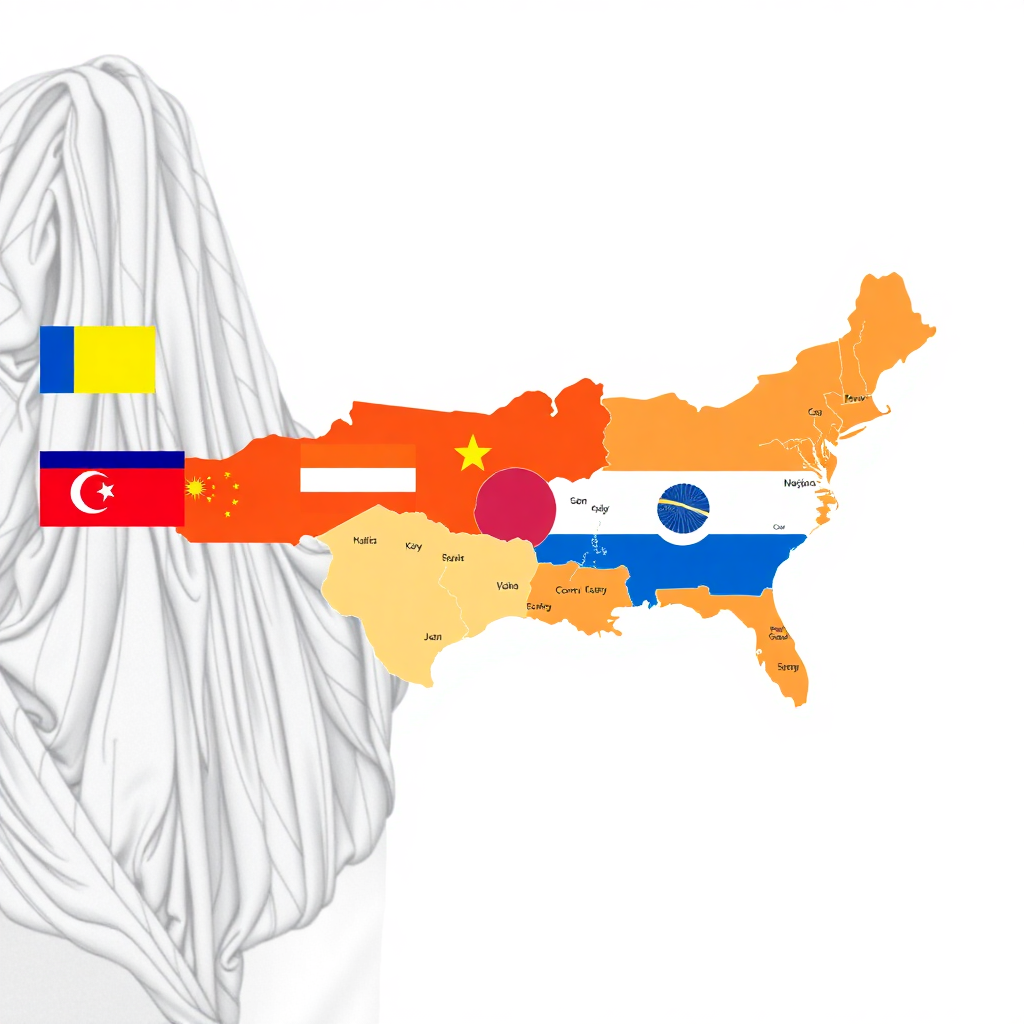Who are the nations in Psalm 83?
The nations mentioned in Psalm 83 are often interpreted as a coalition of adversaries throughout Israel's history. The passage names specific groups, providing insight into the geopolitical landscape of ancient times.
Psalm 83 begins with a plea for God’s intervention against a multitude of foes conspiring to destroy Israel. The psalmist implores God to not keep silent but to act decisively against those who wish to obliterate the nation. This emergency prayer reflects the tension that Israel faced in the historical context, as various enemies consistently sought to undermine the Hebrew people. The psalm, attributed to Asaph, presents a cry for help that resonates with the ongoing struggles faced by the nation of Israel.
The Nations Listed in Psalm 83
The nations mentioned in Psalm 83 are often interpreted as a coalition of adversaries throughout Israel's history. The passage names specific groups, providing insight into the geopolitical landscape of ancient times. Below are the nations identified in the psalm:
- Edom: Representing the descendants of Esau, Edom is frequently characterized by enmity towards Israel, tracing back to the biblical narratives of Genesis. In many instances, Edom sought to oppress and take advantage of Israel during its vulnerable moments.
- The Ishmaelites: As descendants of Ishmael, these tribes often represented the Arab peoples within the broader context of ancient Near Eastern conflicts. Their historical opposition to Israel adds a complex layer to the region’s dynamic.
- Moab: The Moabites, offspring of Lot, are noted for their antagonistic behavior towards Israel, depicted in various biblical accounts. Their inclusion in this passage reinforces the intensity of Israel’s adversaries.
- The Hagrites: While less known, the Hagrites are interpreted as a tribe that encroached upon Israel. Although the specifics about them are scarce, their mention implies a broader range of Arab tribes involved in the opposition.
- Gebel: Often linked to the region around Mount Lebanon, Gebal represents a geographic area that housed its own set of adversarial sentiments towards Israel.
- Ammon: Another tribe descending from Lot, the Ammonites often found themselves in conflict with the Israelites, exhibiting tension that is well documented in biblical history.
- Philistia: Known for their long-standing opposition, the Philistines were a formidable group, frequently clashing with the Israelites throughout the time of the judges and early monarchy.
- Tyre: Prominent in trade and commerce, Tyre is mentioned for its significant influence in the region. The city-state often aligned with Israel’s enemies, showcasing the complexity of regional alliances.
- Assyria: Symbolizing a major empire that threatened Israel, Assyria played a crucial role in the historical oppression of the Israelites, ultimately leading to the Northern Kingdom's exile.

The Implications of This Coalition
Interpreting Psalm 83 as a representation of these nations highlights not only the historical challenges faced by Israel but also the ongoing nature of geopolitical tensions involving faith, identity, and survival. The coalition reflects a broader use of historical enemies as a metaphor for spiritual battles that continue to resonate today.
Conclusion: A Call for Divine Intervention
The call for divine intervention is timeless, reminding readers that amidst adversity, there is a steadfast belief in the protection and guidance of a higher power. The significance of these nations from the psalm echoes through the ages, informing not only theological debates but also contemporary discussions about faith, identity, and resilience in the face of adversity. As readers engage with Psalm 83, they are invited to consider both the historical truths and the enduring relevance of its message in today’s world.